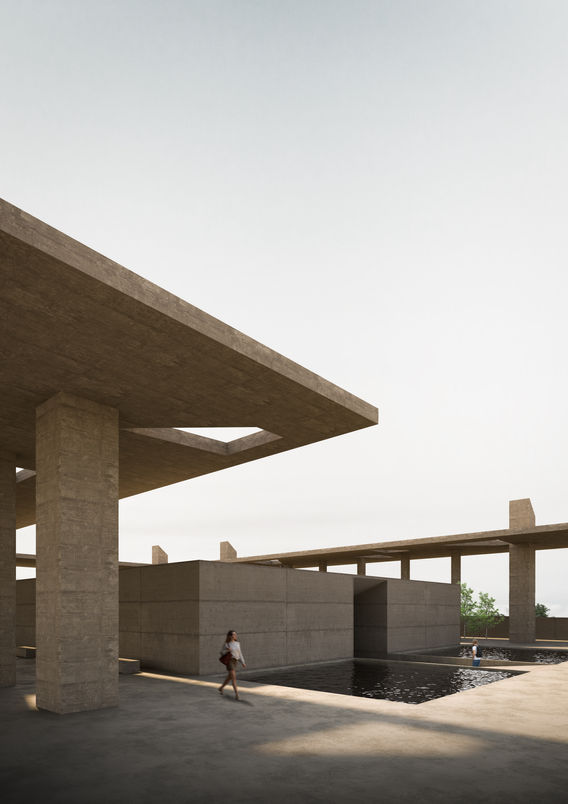الجمعية الأمريكية لطلبة العمارة،
البحرين

AMERICAN INSTITUTE OF ARCHITECTURE STUDENT
BAHRAIN CHAPTER


INTRODUCTION
History, culture, and heritage is what bonds countries together. They are the evidence that showcase the context, traditions, and presence of people in a geographical location. Without history and culture, countries become an empty piece of land. The heritage of a land is what brings the place to life. Heritage is not only history that is learned from books; however, it is what shapes, forms, and describes the people in specific context.
The Early Dilmun culture flourished in the Arabian Gulf more than four thousand years ago, from the middle of the third millennium to about 1700 BC. Its origins lie in the Arabian Peninsula. During its most important and prosperous period, from about 2000 BC, Bahrain became the center of the innovative and independent trading nation. As such, it played a crucial role in the international commerce linking ancient Mesopotamia (modern day Iraq) with the Oman Peninsula and the Indus valley; home of the Harappan culture.
For the last couple of decades, Bahrain has been a pioneer of both leisure and business tourism in the GCC region. Bahrain’s millennia-long history as a trading hub, duo to its strategic location between Mesopotamia and the Indus Valley, has left it with a rich legacy of archaeological and historical sites.
With Dilmun burial ground in A'ali being recognized as a UNESCO world heritage site recently and the Qal’at al-Bahrain, located in the capital of Dilmun, having already acquired this recognition in 2005, it is important to tell the story of different Dilmun settlements to Bahrainis. With the aspiration of making Bahrain into a popular tourist destination, it is important to promote cultural projects in order to showcase the country and its culture to a wider audience. This will allow Bahrain to capitalize on its unique geography and its abundant historical and cultural legacy.
Dimension 22 competition challenges designers to re-interpret the heritage and rich context of Bahrain’s northern part. Designing a cultural pavilion will shed light and revive the contextual area of the northern part of Bahrain, highlight the importance of the different historical sites, and revive the sacred settlements turning them into a significant tourist area.

Winners
Congratulation to all winners, honorable mentions, and participants!
You can check their posters and share them via social media as well!

Competition Program
The program is adjustable according to the competitor concept, the site is 5000m2, and the pavilion space shall be between an area of 1500-2000m2.
The rest of the spaces can be adjusted accordingly.
-
Pavilion Space (1500-2000m)
-
Coffee shop (50m)
-
Gift shop (50m)
-
Services (10%)
-
Parking (25 cars & drop-off)
-
Outdoor Areas


Eligibility
-
All students and graduates of 2021-2022 academic year are eligible to participate.
-
Every Architecture related student is allowed. (Architecture, Interior design, landscape architecture, etc…).
-
You may participate individually or with a group of 2 or 3 members maximum.

Prizes

Prize Pool of 750 BD



1st Place
350 BD
2nd Place
250 BD
3rd Place
150 BD
4th & 5th Place
+ 6 Honorable Mentions
AIAS & BSE will also acknowledge the outstanding performance of all winners, honorable mentions and participants with Certificates of Achievement and/or participation.

Jurors

Eng. Dr. Islam Elghonaimi
from University of Bahrain
د. اسلام الغنيمي
من جامعة البحرين

Eng. Ahmed Al Jowder
from Bahrain Society of Engineers
المهندس د. أحمد الجودر
من جمعية المهندسين البحرينية

Eng. Faeq Juma Almandeel
from Bahrain Society of Engineers
المهندس فائق جمعة المنديل
من جمعية المهندسين البحرينية

Key Dates
Competition Launch
20 AUG 2022
Submission Deadline
01 OCT 2022
Exhibition
09-10 OCT 2022
in Bahrain society of Engineers
Closing Ceremony
12 OCT 2022
Bahraini Engineer Day Event
in Bahrain Society of Engineers

Registration And Submission
All participants shall register Prior to the submission
Submission materials are:
-
One (1) A1 (594×841mm) portrait-orientated poster
-
One (1) Cover Image
-
One A4 document includes the project descriptions (500 words)
When submitting, participants should add their team ID in the below right corner of the poster

























